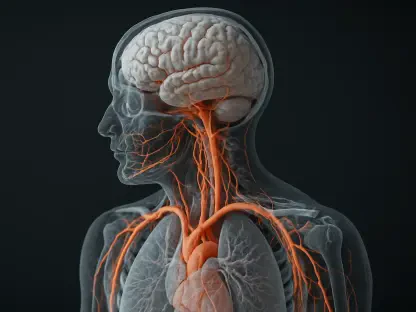In a striking display of frustration, a recent episode of HBO’s popular talk show brought healthcare policy to the forefront of political discourse, revealing deep-seated tensions in American politics. Comedian and commentator Bill Maher unleashed a scathing critique of the Republican Party and former President Donald Trump, accusing them of an almost inexplicable fixation on dismantling healthcare access for millions of Americans. This segment, rich with sharp commentary and insightful panel discussion, underscored the ongoing battle over the Affordable Care Act (ACA), often referred to as Obamacare. Maher’s pointed remarks, combined with contributions from notable guests, painted a vivid picture of a nation divided not just by policy but by fundamental views on what constitutes public good. The conversation illuminated the high stakes of this issue, particularly as potential policy changes loom large over the financial and physical well-being of countless citizens.
Political Critique and Healthcare Policy
Maher’s Uncompromising Stance on GOP Actions
Bill Maher’s commentary cut straight to the heart of what many see as a perplexing contradiction in Republican policy on healthcare. He expressed sheer disbelief at the party’s relentless drive to repeal the ACA, a system with roots in conservative ideas like the model Mitt Romney pioneered in Massachusetts. Maher highlighted the irony in GOP rhetoric about preventing “freeloaders” in emergency rooms while simultaneously advocating for policies that would strip coverage from millions, leaving them with few options. His critique focused on the numerous failed attempts to dismantle Obamacare, culminating in the elimination of the individual mandate—a move that many argue destabilized the system. This persistent effort, according to Maher, reflects an ideological battle that prioritizes political wins over practical benefits for Americans, framing healthcare as not just a policy issue but a moral failing that continues to impact vulnerable populations across the country.
The Broader Implications of Republican Strategy
Delving deeper into the ramifications of these policy moves, Maher’s discussion revealed a troubling forecast for the future of healthcare access. He emphasized that the GOP’s actions have tangible consequences, with experts predicting that premiums could more than double by 2027 if key ACA provisions, such as enhanced premium tax credits, are allowed to expire. This potential surge in costs would hit middle- and low-income families hardest, exacerbating existing disparities in access to care. Maher also positioned healthcare as a pivotal issue in political negotiations, particularly during government shutdowns, questioning whether the public would ultimately attribute the resulting pain—skyrocketing costs and reduced coverage—to the policies of the current administration. This segment of the show underscored the urgency of public awareness, as the effects of these decisions are not abstract but deeply personal, touching the lives of everyday Americans in profound ways.
Strategic Missteps and Public Perception
Democratic Tactics Under Scrutiny
Shifting focus to the other side of the aisle, the panel discussion featured CNN commentator Van Jones, who offered a critical take on Democratic strategy in the healthcare debate. Jones argued that while the party’s intentions may be rooted in protecting access to care, their execution often misses the mark, characterized by poorly timed decisions that could alienate the public. He pointed out that opting for a government shutdown over a clean resolution risks diluting the focus on healthcare itself. Instead of highlighting the looming threat of premium hikes, Democrats face the danger of public backlash over unrelated disruptions like postal delays or other federal service interruptions. Jones expressed concern that such missteps could hand Republicans an easy narrative to blame Democrats for chaos, diverting attention from the core issue of affordable healthcare and the dire consequences of policy inaction that could unfold in the near future.
Balancing Ideology with Political Reality
Further exploring the Democratic dilemma, Jones sympathized with the base’s desire for bold action but questioned the effectiveness of their current approach. He suggested that had Democrats avoided a shutdown, the public might soon feel the direct sting of steep premium increases, potentially galvanizing outrage against GOP policies by the end of the year. Instead, the decision to engage in a standoff burdens federal workers and disrupts services, muddying the waters of public perception. This strategic miscalculation, Jones argued, not only jeopardizes the party’s messaging on healthcare but also risks long-term political fallout as voters grapple with the immediate effects of government dysfunction. The discussion highlighted a critical tension between ideological purity and pragmatic governance, illustrating how both parties struggle to align their actions with the public’s lived experiences of rising costs and shrinking access to essential medical services.
Navigating a Path Forward in Polarized Times
Reflecting on the broader political landscape, the exchange captured a moment of intense polarization where healthcare remains a flashpoint with no easy resolution in sight. Maher’s sharp critique of Republican policy paired with Jones’s nuanced assessment of Democratic tactics revealed a shared frustration with the status quo. The discussion from this episode illustrated how the battle over healthcare transcends mere policy, intertwining with perception, strategy, and the raw emotion of public impact. Looking back, the urgency of addressing escalating costs and access barriers was palpable, yet the path to meaningful change seemed fraught with partisan obstacles. Moving forward, the challenge lies in bridging these divides through dialogue that prioritizes tangible outcomes over political posturing, ensuring that the voices of those most affected by these policies shape the solutions crafted in the halls of power.









